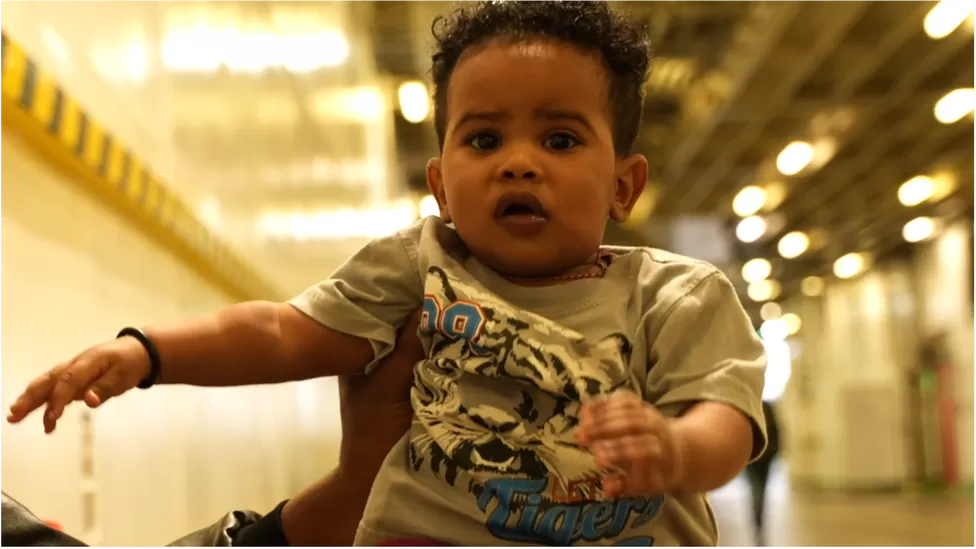After passing tight security and passing up the clanking gangway we meet our first passenger on the ferry that's going nowhere.
Salher is just six month old. The smile that erupts across his face belies the hardship he and his 19-year-old mother Aster have endured.
She explains that her son was born in Rwanda after she travelled there from Eritrea, after fleeing persecution.
"It's fine here. No problem. I want to learn Dutch and then I want to work."
We're told the Silja Europa is one of the biggest passenger ferries in the world, able to carry up to 3,000 travellers.
But for the past six months, it hasn't been taking people from the Estonian capital Tallinn to the Finnish capital Helsinki - its normal route.
It's been a floating but stationary home to 900 asylum seekers and migrants at this dock 20km (12 miles) outside Amsterdam.
With the main Dutch reception centre near the German border overflowing and heavily criticised for poor conditions, the Netherlands government has been trying something new. The UK is now exploring the same option.
"I like it here," says Zara, who tells us she fled her home in Chad after her first husband tried to kill her.
"In other camps we had to share a room with four or five people; it's not easy to live like that. Here, we have our own room. Conditions are much better here on the boat."
Sheza is one of seven women who has welcomed us into a corner they have commandeered and we sit on the floor and talk.
Their home countries are varied - among them Syria, Pakistan and Turkey - but they all say they have been victims of violence or religious persecution.
"The Dutch have done very well, they look after us even though there are many of us in one place. It is safe, clean and comfortable, well organised.
"Food is very different from what we know, it's a different culture."
When the ferry first docked six months ago, hundreds of locals expressed anger amid fears that jobs would be taken and that local services like the doctors' surgery would be overrun.
The part of the government which is running this scheme, the Central Agency for the Reception of Asylum Seekers (COA), took on board accusations that migrants would be living a life of luxury.
As we're guided around the boat, we see that six of the seven restaurants are closed off. The sauna and swimming pool are shuttered, and the casino and theatre are out-of-bounds.
The conference room, decked out with comfortable-looking red felt seats, is now used to teach Dutch lessons, as well as for seminars on human rights and discussions about gender equality.

